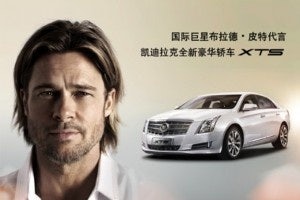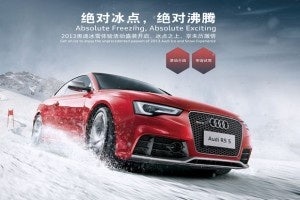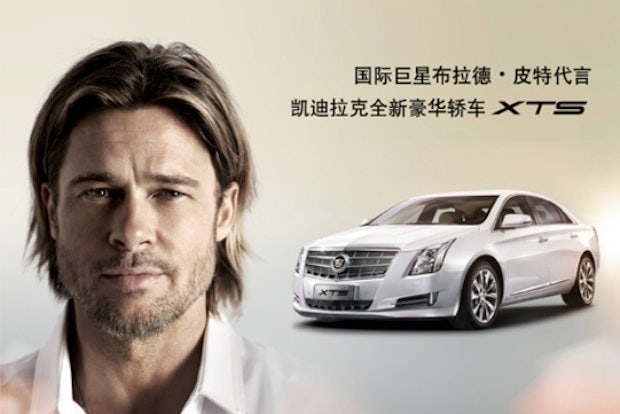“Some 80% Of High Net Worth Individuals In China Are 44 Or Younger"#

From WeChat accounts to Weibo competitions, brand ambassadors to home-grown Chinese designers, luxury car brands are taking their China efforts to the next level to tap rising incomes among the country's digitally savvy 20- and 30-somethings. With China poised to surpass the US to become the world's largest luxury car market by 2016, international marques have been busy expanding into less developed inland cities, reaching out to consumers via Chinese social media platforms, asking for netizens’ input on new models, and tailoring designs to the particular demands of the Chinese buyer.
As they expand into China's interior and focus less on already developed (and traffic-clogged) cities like Beijing, digital media in particular is becoming a critical and relatively cheap way for automakers to court younger, first-time buyers. (Who are highly receptive to advertising, do a great deal of pre-purchase online research, and are often active on several domestic Chinese social networks.)
But digital marketing is not only an extension of advertising efforts in China. Brands with more stodgy reputations in China, such as Audi, have increasingly gone digital in an attempt to change their image. As Jing Daily wrote last week, Audi plans to hire more local Chinese designers to localize models for the Chinese market and make the brand more appealing to younger consumers while shaking its "bureaucrat-mobile" stigma. To kickstart this effort, Audi recently opened the doors of its newest global design center in Beijing, and launched an innovative, interactive digital showroom at Beijing's Oriental Plaza mall.

Despite well-publicized missteps, Cadillac too is trying to appeal to a younger buyer in China via a multi-platform marketing campaign for its new XTS sedan, featuring Brad Pitt. Over the past few months, the brand has stayed on-trend by launching competitions on its official Sina Weibo page and posting regular updates on WeChat to keep followers up to date on recent developments. Also on Sina Weibo, earlier this year Jaguar kicked off a co-branded competition to celebrate the China release of Skyfall, while Maserati took to the platform to promote its new Quattroporte. Others went a step further, experimenting with online sales. In January, Mercedes-Benz-owned Smart got on the digital bandwagon by selling a limited-edition version of its Fourtwo via Sina Weibo.
As the FT notes this week, look for this digital emphasis to only intensify as China's auto market develops, even though not every campaign will be a success:
The need for digital marketing will continue to grow as the Chinese premium car market expands beyond the current 100 cities, to 300 cities by 2020, says Sha Sha, automotive expert at McKinsey. The consultancy recently predicted that China will surpass the US as the world’s largest premium car market in just three years. McKinsey forecasts 12 per cent growth in the Chinese premium car market through 2020, compared with 8 per cent for the overall Chinese passenger vehicle market.
But not every experiment in digital marketing has been a success. Lamborghini closed an online shop set up on Taobao’s T-mall to sell the lavish sports car, having failed to make a single sale. A spokesperson for Lamborghini China said the shop was opened by a dealer, who was reprimanded for doing so: “We think this is not proper for a luxury car brand such as Lamborghini. Our targeted customers will not make purchases online.”
